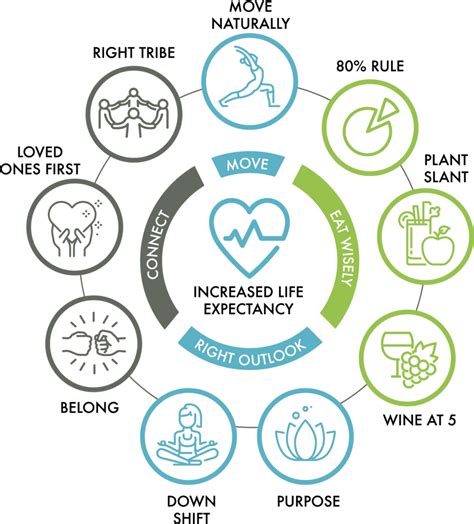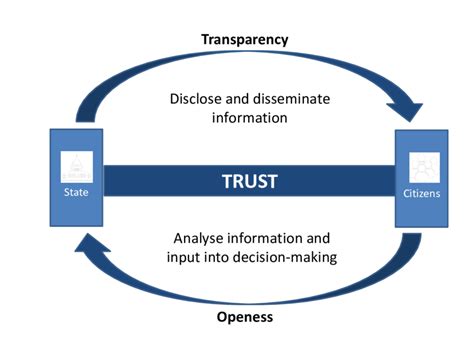
After spending six months in Europe, one American traveler is adopting five lifestyle changes learned abroad, focusing on prioritizing well-being over constant productivity, enhancing social connections, and appreciating simple daily pleasures.
An American who immersed herself in European culture for six months is bringing home a revised approach to daily life, emphasizing a slower pace, stronger community ties, and a greater appreciation for simple joys. The traveler, identified as Alex Jiménez in her Yahoo! Lifestyle article, detailed five key lifestyle changes she intends to implement, inspired by her experiences across various European countries. These adjustments range from altering eating habits to prioritizing social interactions and leisure activities, reflecting a broader shift in perspective toward a more balanced and fulfilling existence.
Jiménez’s transformative experience began with a desire to escape the relentless demands of American work culture and explore a different way of life. She observed that Europeans often prioritize quality of life over relentless productivity, leading to healthier relationships with work, food, and community. This realization prompted her to re-evaluate her own priorities and identify areas where she could incorporate European principles into her daily routine.
The first major change Jiménez plans to adopt is a revised approach to mealtimes. “In Europe, eating is an event,” she noted, contrasting it with the often rushed and utilitarian approach to food in the United States. She intends to slow down and savor her meals, paying closer attention to the flavors and textures of her food. This includes taking the time to prepare meals thoughtfully and sitting down at a table, free from distractions, to fully enjoy the experience. She aims to make meal times more social, inviting friends and family to share in the pleasure of good food and conversation. “I want to bring that intentionality and enjoyment back into my own kitchen,” she stated. This shift is not merely about eating better food, but about creating a more mindful and enjoyable experience around eating.
Secondly, Jiménez plans to prioritize walking as a primary mode of transportation. She was struck by the prevalence of walking and cycling in European cities, which she found contributed to a greater sense of community and well-being. “I walked everywhere,” she wrote, “and I loved it.” She observed that walking not only provided physical exercise but also allowed her to connect with her surroundings in a more meaningful way. By walking more and driving less, Jiménez hopes to reduce her carbon footprint, improve her physical health, and foster a stronger connection to her local community. She envisions exploring her neighborhood on foot, discovering hidden gems, and engaging with local businesses and residents. She also plans to incorporate walking into her commute whenever possible, even if it means leaving earlier or walking part of the way.
The third lifestyle change involves embracing the concept of “apéro,” a pre-dinner drinks and snacks ritual common in many European countries. Jiménez observed that apéro provides an opportunity to unwind, socialize, and connect with friends and colleagues after work. “It’s all about slowing down, connecting with people, and enjoying a simple pleasure,” she explained. She plans to incorporate apéro into her own routine by hosting regular gatherings with friends and family, offering a selection of drinks and snacks, and creating a relaxed and convivial atmosphere. This is seen as a way to de-stress after a long day, strengthen social bonds, and cultivate a greater sense of community. The appeal of apéro lies not just in the food and drinks, but in the intentional act of carving out time for connection and relaxation.
Jiménez’s fourth takeaway centers on embracing a more relaxed attitude towards work and productivity. She noted that Europeans generally place a higher value on work-life balance, prioritizing personal time and leisure activities over relentless work schedules. “They work to live, not live to work,” she observed. She intends to incorporate this philosophy into her own life by setting clearer boundaries between work and personal time, taking regular breaks throughout the day, and prioritizing activities that bring her joy and relaxation. This might involve saying no to extra work commitments, delegating tasks when possible, and consciously carving out time for hobbies and personal interests. The goal is to reduce stress, prevent burnout, and cultivate a more sustainable and fulfilling relationship with work. This also involves embracing the idea that it’s okay to not be constantly productive and to prioritize rest and rejuvenation.
Finally, Jiménez plans to cultivate a greater appreciation for everyday pleasures. She observed that Europeans often find joy in simple things, such as a well-made coffee, a beautiful sunset, or a leisurely stroll through a park. “They savor the small moments,” she noted. She intends to incorporate this mindset into her own life by paying closer attention to her surroundings, practicing gratitude, and consciously seeking out moments of beauty and joy in her daily routine. This might involve taking time to admire the flowers in her garden, listening to her favorite music, or simply sitting in silence and appreciating the present moment. The key is to cultivate a sense of mindfulness and to appreciate the small things that often go unnoticed. This also means focusing on experiences rather than material possessions and finding joy in the process of living rather than constantly striving for some future goal.
Jiménez’s experiences highlight the potential benefits of adopting a more European approach to life, emphasizing well-being, connection, and appreciation for simple pleasures. Her decision to incorporate these changes into her own routine reflects a growing awareness of the importance of work-life balance and the pursuit of a more fulfilling existence. By slowing down, connecting with others, and savoring the small moments, she hopes to create a more meaningful and joyful life for herself.
The story resonates with many Americans who are increasingly seeking alternatives to the demanding and often stressful nature of American work culture. The pandemic has further amplified this desire for change, as many people have had the opportunity to re-evaluate their priorities and consider what truly matters to them. Jiménez’s journey serves as an inspiration for others who are looking to create a more balanced and fulfilling life, reminding them that it is possible to prioritize well-being without sacrificing success or happiness. Her experience also provides practical examples of how to incorporate these changes into everyday life, making the prospect of adopting a more European lifestyle feel more accessible and achievable.
Furthermore, Jiménez’s account underlines the cultural differences that exist between the United States and Europe regarding work ethic and lifestyle. While both cultures value hard work and achievement, they differ in their approach to integrating work into their lives. In the United States, there is often a strong emphasis on productivity and career advancement, which can lead to long hours, high stress levels, and a blurring of the boundaries between work and personal life. In contrast, many European cultures place a greater emphasis on work-life balance, prioritizing personal time, leisure activities, and social connections. This difference in cultural values is reflected in policies such as mandatory vacation time, shorter workweeks, and greater access to social support services.
The article also touches on the importance of community and social connection in promoting well-being. Jiménez observed that Europeans often have stronger social networks and spend more time with friends and family, which she believes contributes to their overall happiness and life satisfaction. In the United States, social connections can be more fragmented and transient, due to factors such as geographic mobility, long work hours, and a culture of individualism. Building and maintaining strong social connections requires effort and intentionality, but the benefits are significant. Research has shown that strong social relationships are associated with better physical and mental health, increased longevity, and a greater sense of purpose and belonging.
Jiménez’s story is not just about adopting European lifestyle changes; it is about cultivating a more mindful and intentional approach to life. By consciously choosing to prioritize well-being, connection, and appreciation for simple pleasures, she is creating a life that is more aligned with her values and more conducive to her overall happiness and fulfillment. Her journey serves as a reminder that we all have the power to shape our own lives and to create a world that is more in line with our vision of a good life. The principles she is embracing are not unique to Europe; they are universal values that can be adopted and adapted to any culture or context. The key is to be intentional about our choices and to prioritize the things that truly matter to us.
The appeal of Jiménez’s story also lies in its practicality. She is not advocating for a radical overhaul of one’s life, but rather for a series of small, manageable changes that can be gradually incorporated into one’s daily routine. This makes the prospect of adopting a more European lifestyle feel less daunting and more achievable. By starting with simple changes, such as slowing down during mealtimes or taking a walk in nature, individuals can begin to experience the benefits of a more balanced and fulfilling life. Over time, these small changes can lead to significant improvements in overall well-being and quality of life.
The increasing interest in European lifestyles also reflects a growing dissatisfaction with the fast-paced, consumer-driven culture that is prevalent in many parts of the world. People are increasingly questioning the pursuit of material possessions and career success as the primary goals in life, and are seeking alternative ways to find meaning and fulfillment. The European emphasis on work-life balance, social connection, and appreciation for simple pleasures offers a compelling alternative to this dominant cultural narrative.
Jiménez’s experiences also highlight the importance of travel in broadening one’s perspective and challenging one’s assumptions about the world. By immersing herself in a different culture, she was able to see her own life and culture in a new light, and to identify areas where she could make positive changes. Travel can be a transformative experience, opening our minds to new possibilities and inspiring us to create a better world for ourselves and for others.
The story underscores the idea that lifestyle changes are not a one-size-fits-all proposition. What works for one person may not work for another. The key is to experiment, to find what resonates with you, and to adapt these principles to your own unique circumstances and preferences. There is no right or wrong way to embrace a more European lifestyle. The goal is simply to create a life that is more aligned with your values and more conducive to your overall happiness and fulfillment.
In conclusion, Alex Jiménez’s journey to embrace European lifestyle changes offers valuable insights and inspiration for those seeking a more balanced and fulfilling life. By prioritizing well-being, connection, and appreciation for simple pleasures, she is creating a life that is more aligned with her values and more conducive to her overall happiness and fulfillment. Her story serves as a reminder that we all have the power to shape our own lives and to create a world that is more in line with our vision of a good life. The principles she is embracing are not unique to Europe; they are universal values that can be adopted and adapted to any culture or context. The key is to be intentional about our choices and to prioritize the things that truly matter to us. Her five key takeaways—slowing down during mealtimes, prioritizing walking, embracing “apéro,” finding a better work-life balance, and appreciating everyday pleasures—provide a practical roadmap for anyone who is looking to create a more meaningful and joyful life.
Frequently Asked Questions (FAQ)
1. What are the 5 lifestyle changes the American traveler, Alex Jiménez, is bringing home from Europe?
Alex Jiménez is adopting five key lifestyle changes:
- Slowing down and savoring mealtimes, making them a social event.
- Prioritizing walking as a primary mode of transportation.
- Embracing “apéro,” a pre-dinner drinks and snacks ritual for socializing.
- Adopting a more relaxed attitude toward work and productivity, emphasizing work-life balance.
- Cultivating a greater appreciation for everyday pleasures and simple moments.
2. Why did Alex Jiménez decide to spend six months in Europe and adopt these lifestyle changes?
Jiménez sought to escape the demanding American work culture and explore a different way of life that prioritizes well-being and community. She observed that Europeans often prioritize quality of life over constant productivity, leading to healthier relationships with work, food, and community, and she wanted to incorporate these principles into her own life.
3. What is “apéro,” and how does Jiménez plan to incorporate it into her routine?
“Apéro” is a pre-dinner drinks and snacks ritual common in Europe. Jiménez plans to incorporate it by hosting regular gatherings with friends and family, offering a selection of drinks and snacks, and creating a relaxed and convivial atmosphere to unwind, socialize, and connect with people after work.
4. How does Jiménez plan to improve her work-life balance, inspired by European work culture?
Jiménez intends to set clearer boundaries between work and personal time, take regular breaks throughout the day, and prioritize activities that bring her joy and relaxation. This involves saying no to extra work commitments, delegating tasks when possible, and consciously carving out time for hobbies and personal interests to reduce stress and prevent burnout.
5. How can individuals adopt a more European lifestyle without necessarily traveling to Europe?
Individuals can adopt elements of a European lifestyle by:
- Being more mindful and intentional about meals, savoring each bite and making it a social experience.
- Incorporating more walking or cycling into their daily routines.
- Creating opportunities for regular social gatherings with friends and family.
- Setting boundaries between work and personal time and prioritizing leisure activities.
- Cultivating a greater appreciation for everyday pleasures and practicing gratitude.
Expanded Information and Context
The core of Jiménez’s experience lies in a reevaluation of deeply ingrained cultural norms. American culture, often celebrated for its innovation and productivity, can also foster a relentless pursuit of achievement that comes at the expense of personal well-being. The emphasis on “hustle culture,” where constant work is glorified, can lead to burnout, stress, and a neglect of social connections and personal interests.
Jiménez’s reflections highlight a crucial distinction: working to live versus living to work. In the American context, many individuals find themselves defined by their careers, leading to an imbalance where personal fulfillment is often sacrificed for professional success. This can manifest in long hours, a lack of vacation time, and a constant pressure to be productive.
In contrast, many European cultures prioritize a more balanced approach, where work is viewed as a means to an end, rather than an end in itself. This perspective allows for a greater emphasis on personal time, leisure activities, and social connections. While economic factors and social safety nets contribute to this difference, cultural values play a significant role.
The adoption of these lifestyle changes is not merely about imitating European habits but about consciously choosing to prioritize well-being and creating a more fulfilling life. Each of the five changes identified by Jiménez represents a shift in perspective and a conscious effort to cultivate a more balanced existence.
Further Elaboration on the Five Lifestyle Changes
-
Savoring Mealtimes: This goes beyond simply eating healthy food. It involves creating an experience around food that is mindful, social, and enjoyable. This can include:
- Cooking meals from scratch using fresh, local ingredients.
- Setting the table and creating a pleasant atmosphere.
- Turning off electronic devices and focusing on the meal and the company.
- Engaging in conversation and sharing stories.
- Slowing down and savoring each bite, paying attention to the flavors and textures.
The benefits of this approach extend beyond physical nourishment. It can reduce stress, improve digestion, and foster a greater appreciation for food and the people who share it with you.
-
Prioritizing Walking: Walking is a simple yet powerful way to improve physical and mental health, connect with your community, and reduce your environmental impact. This can involve:
- Walking to work or school instead of driving, whenever possible.
- Taking the stairs instead of the elevator.
- Exploring your neighborhood on foot and discovering hidden gems.
- Joining a walking group or organizing walks with friends and family.
- Walking in nature and enjoying the scenery.
Walking not only provides physical exercise but also allows you to clear your head, reduce stress, and connect with your surroundings in a more meaningful way.
-
Embracing “Apéro”: This ritual provides an opportunity to unwind, socialize, and connect with others in a relaxed and informal setting. This can include:
- Hosting regular gatherings with friends and family.
- Offering a selection of drinks, such as wine, beer, or cocktails.
- Providing light snacks, such as cheese, olives, bread, or nuts.
- Creating a relaxed and convivial atmosphere.
- Engaging in conversation and sharing stories.
“Apéro” is not just about the food and drinks; it is about creating a space for connection and relaxation, fostering a sense of community and belonging.
-
Work-Life Balance: Achieving a healthy work-life balance is essential for preventing burnout, reducing stress, and maintaining overall well-being. This can involve:
- Setting clear boundaries between work and personal time.
- Taking regular breaks throughout the day.
- Prioritizing activities that bring you joy and relaxation.
- Saying no to extra work commitments when necessary.
- Delegating tasks when possible.
- Taking vacations and using your time off to recharge.
Creating a sustainable work-life balance requires conscious effort and a willingness to prioritize your well-being.
-
Appreciating Everyday Pleasures: Cultivating a greater appreciation for the simple joys of life can enhance your overall happiness and fulfillment. This can involve:
- Paying closer attention to your surroundings.
- Practicing gratitude.
- Seeking out moments of beauty and joy in your daily routine.
- Taking time to admire the flowers in your garden.
- Listening to your favorite music.
- Sitting in silence and appreciating the present moment.
- Savoring a cup of coffee or tea.
- Watching a sunset or sunrise.
By consciously seeking out and appreciating these small moments, you can cultivate a greater sense of mindfulness and joy in your life.
Addressing Potential Criticisms and Challenges
While the adoption of these lifestyle changes offers numerous benefits, it is important to acknowledge potential criticisms and challenges. Some might argue that these changes are impractical or unrealistic given the demands of modern life, particularly in the United States.
It is true that implementing these changes may require adjustments and compromises. It may not always be possible to walk to work or to take long breaks during the day. However, the key is to find ways to incorporate these principles into your life in a way that is sustainable and realistic for you.
It is also important to recognize that cultural differences can play a role. What is considered normal or acceptable in one culture may not be in another. However, the underlying principles of well-being, connection, and appreciation for simple pleasures are universal and can be adapted to any cultural context.
The Broader Implications
Jiménez’s story reflects a broader trend of individuals seeking alternatives to the dominant cultural narrative of constant productivity and material success. There is a growing awareness of the importance of well-being, connection, and meaning in life.
This shift in values is not only beneficial for individuals but also for society as a whole. By prioritizing well-being, we can create healthier and more sustainable communities. By fostering connection, we can build stronger social networks and reduce social isolation. By appreciating simple pleasures, we can cultivate a greater sense of gratitude and contentment.
Jiménez’s journey serves as an inspiration for others to create a more balanced and fulfilling life, reminding us that we have the power to shape our own destinies and to create a world that is more in line with our values.









